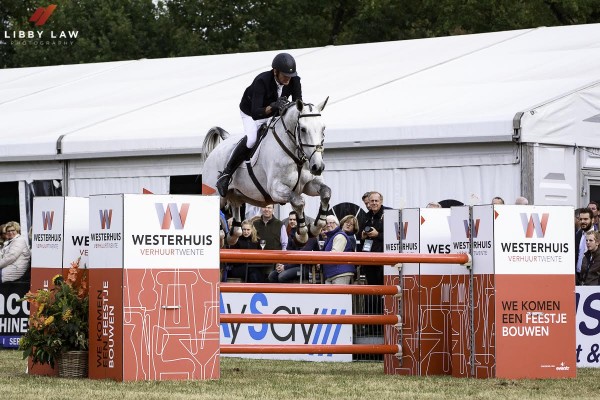Making sure your horses for sale are sold correctly with Horse Scout
The majority of us who have ever sold a horse will have experienced tyre kickers, joy riders, greedy agents and trainers with their own agenda. Then there are the international scammers who want to buy the horse from a video without questions- just send all your bank details to that man in Nigeria. It is these individuals who make the selling process an unpleasant experience.
The Legal aspect
Unfortunately when you come to sell a horse, whether you have owned it for a decade or a week you do not have many legal rights and buyers know this. If you are a commercial set up, individual or professional rider who has put expenses for horses through the books, then that makes you a dealer. It makes no difference if you have owned the horse for years and are selling at a loss.
From a legal point of view, horses are considered as goods. Therefore the jurisdiction relating to the sale of goods applies to them. The law provides people buying from a dealer, significantly more protection than it does as against a private seller.
When someone buys from a seller acting in the course of their business, section 14 of the Sales of Goods Act 1979 will impose terms into the agreement for sale, such as that the horse is of satisfactory quality and fit for the purpose it is being bought for. What this means is that the purchaser has the right to annul the contract and return the horse if it is not in compliance with these terms. For example, if the horse has a behavioural problem that was present prior to the date of purchase, which the buyer only discover after the sale. The buyer is then entitled to a full refund and it is even up to the seller to pick the horse up at their own expense.
However, in the words of an world renowned and highly regarded horse dealer (who shall remain nameless) “you sell the horse not the rider”. Meaning that horses can be ruined very quickly by an unsuitable rider. The good news is that the seller does have some legal rights in this event.
The law regards the purchase of a horse as being the purchase of an unknown quantity. They call it “caveat emptor”, essentially meaning “buyer beware”. So the buyer is responsible for examining the horses thoroughly for suitability and quality before handing over any money. An agreement for the sale of a horse depends both on “express terms”- those specifically agreed between the parties and “implied terms”, which are the conditions implied by the law.
So if you are looking to sell a horse, we have come up with our tips on how to make the process as pain-free as possible. Some may seem obvious but we would hate to say “I told you so”.
- Honesty is ALWAYS the best policy. If you want to establish and keep a good reputation, it’s never worth deceiving people. We are probably all fools for buying a horse in the first place but not many of us are as ignorant as we may seem, we do our due diligence and insincerity will always come back to haunt you. The horse world is a bitchy place and a hive of gossip and slander- a bad horse is not worth a lifetime of abuse. Remember as a horse seller, many buyers think of you as about as trustworthy as a used car salesman. So surprise them by being totally upfront about a horse’s weaknesses, imperfections and history. It’s a win-win situation and reverse psychology can be an effective tool.
- Sell quality, correctly produced horses. Quality always sells and usually quickly, meaning less overheads. If you limit yourself to more quality than quantity, you will secure a solid reputation in the industry and have people banging down the door trying to buy your horses. Something ridden with pleasure, is seldom made without effort. You cannot make a Grand Prix dressage horse in two months but train him to stand still when the rider mounts, to load easily and jump around a course without head-butting the rider.
Resist buying it in the first place, solely because it is cheap. Find something desirable that preferably ticks the three boxes- temperament, talent and conformation.
If you do end up with a bad one, consider whether it is worth the effort of trying to make it a good horse. There are other dealers out there who won’t ask the questions and care less about their own reputation.
- Lame horses lose time and money. This goes hand in hand with honesty. If you know it is not 100% on a circle then the vet examining it, certainly will and that just makes you look a fool. There are buyers out there, brave enough to take a punt so if the horse cannot be given time to recover, drop the price and be upfront.
- Market your product. Buyers are unlikely to be convinced to come and look at a horse with blurred iPhone photos and a video filmed from 200 metres away. It can take time to make a horse presentable and make him stand square but it is worth it in the end, whatever the value. So lose the shabby pink headcollar and the muddy legs. Stand him on level ground and throw a few carrots in the air to make him smile for the camera. It’s like internet dating- first impressions do matter!
- The skill of advert descriptions. Make it comprehensive but concise. Imagine you are a journalist or marketeer and try and hook your audience with the opening paragraph. Height, age, sex, purpose and a few buzz words to sum up temperament, looks or ability eg unbelievable scope, wow paces, ultimate schoolmaster. It won’t work on everyone but it helps if you seem positive and excited about the horse you are selling.
- Price appropriately. If you really want to sell, ask a fair price for what the horse is worth today, not what it will be worth in three months’ time after intensive schooling and three wins under it’s belt. When working out price, consider the obvious- the horse’s age, history of soundness, level of training, rideability but also the time of year and your location. It is no myth that the same sound competition horse will command a higher price in affluent part of the country which is easily accessible, than it would if it was based on the North coast of Scotland. Remember everyone likes to feel they are getting a bit of a deal, so be prepared to take something off the asking price. On the other side of the coin (excuse the pun), too cheap will sound alarm bells.
- Realism saves time. Ask the buyer early on, what they are looking for and an honest appraisal of their riding ability. Take a written note of this, it may be useful if you ever get caught in a legal battle over the unsuitability of a horse. Evaluate from their description, their background and their riding as to whether this horse will cope with the partnership. Measure your horse’s height with a real stick rather than relying on what it says in the passport, estimated when it was a yearling.
- Be courteous and prompt Even with suspected time wasters. Respond within 24 hours, even if you cut and paste a ready-made “template”, including video links. Serious buyers will usually pick up the phone first but the downside of living in a digital age is that many people are almost scared of picking up the phone. Keep all prospective buyers in the loop about a horse’s status eg just won a British Novice, still for sale etc. Even if they decide your horse is not for them, be polite and wish them the best of luck in their search. They may end up coming back another time if they enjoyed dealing with you. Or if you know someone selling a horse which may be more suitable, it is always worth sharing. They are more likely to return the favour.
Testimonials
“We’ve used Horse Scout for selling horses and I have also been to see horses to buy. There is always a huge selection and you can target exactly what you are looking for.” – Emily King FEI 4* Event Rider.
“We have advertised multiple horses with Horse Scout and have sold horses quickly and efficiently. We find that responders to the Horse Scout advertisements are genuine and knowledgable horse people which makes advertising with Horse Scout very appealing because you know the horses are going to capable caring homes. The personalised service Hannah and her team provide makes advertising quality horses easy” Alex and Suze Peternell International Event Rider
“I have been using horse scout for the past 8 months. It is a fantastic contribution to the successful running of my business. Easy to use, great service from Hannah. I would recommend to anyone.” Dan Sibley International Event Rider
Written by Ellie Kelly
Photography credits to Libby Law






